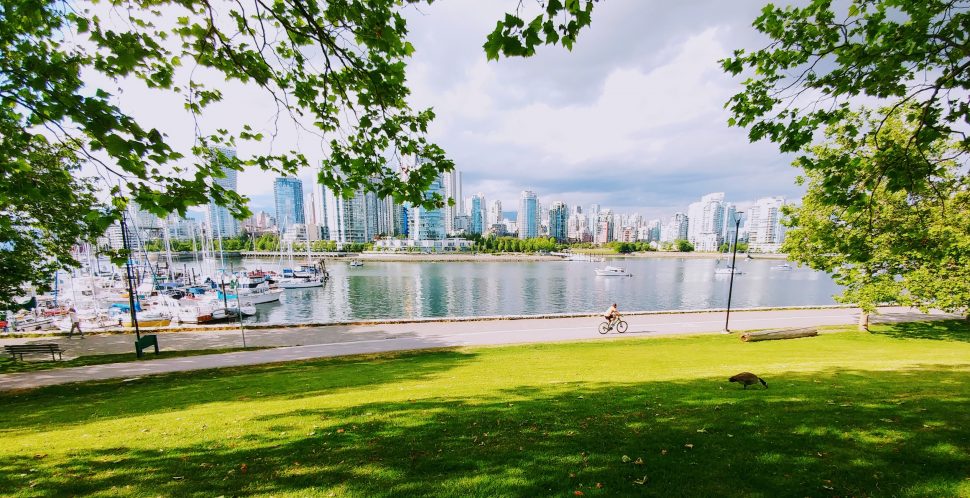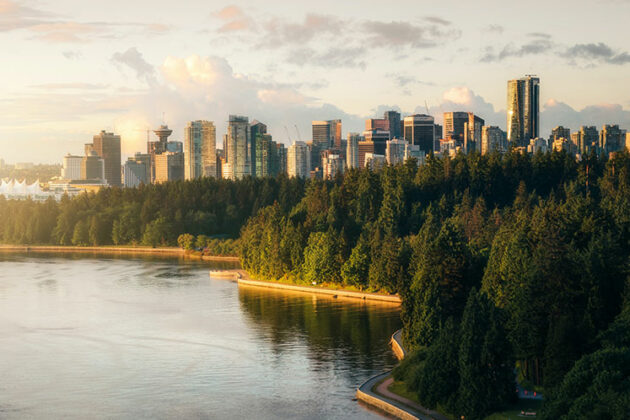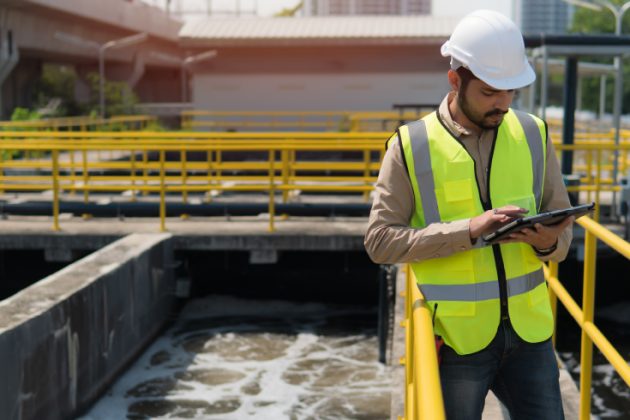The C40 World Mayors Summit, held in Copenhagen this past October, welcomed political and business leaders from 94 cities around the world, all sharing one imperative goal: identify and implement systemic changes that will halt and reverse the damaging effects of climate change. In addition to staging powerful talks by sustainability leaders like Al Gore, former vice president of the US, and Ada Colau, mayor of Barcelona, the summit supported intense discussions and education about successful policies and initiatives instituted by C40 cities.
Several ideas stood out to us, some that align with existing work, such as construction and new prosperity metrics; and others, including initiatives related to ports and airports, suggesting new opportunities for Vancouver Economic Commission, the City and other regional actors to grow our impact on climate action:
Doughnut Economics
Similar to the circular economy concept, where people keep resources for as long possible to extract their maximum value, Doughnut Economics (created by renegade economist Kate Raworth) imagines the “doughnut zone” as the space where we can live sustainably – the space that exists between satisfying basic needs and staying within ecosystem boundaries. Amsterdam is a champion for this approach, with more than 40 city officials collaborating with circular economy experts to build a circular Amsterdam that satisfies residents and the environment. Vancouver Economic Commission has been working for some time on new ways to measure prosperity, and it is inspiring to see the Doughnut model being applied in more and more cities.
Activating Private Capital
Los Angeles, New York City, London and Portland have all made significant progress in driving public and private capital towards sustainable solutions. New York and London’s efforts as part of the C40 Divest/Invest Forum – a coalition of cities committed to exploring alternatives to fossil fuels and accelerating green investment – have sparked discussions promoting the use of large pools of capital for sustainable purposes. Los Angeles has vowed to mobilize private sector green investment within the city, aiming to reach $750 million by 2025 and $2 billion by 2035. Portland has introduced a new surcharge on large companies that is expected to raise up to $71 million per year for energy retrofits, job retraining and innovation investments. The potential for channeling Vancouver’s private capital towards sustainable solutions is too provocative to ignore.
Clean Construction
Oslo, Copenhagen and Stockholm have committed to going even deeper into emissions in the construction sector by focusing on on-site emissions, and with good reason: C40 research has shown that changes in this industry could slash emissions by 44% before 2050. Strategies include using lower-carbon cement, reusing building materials and components, and using low or zero-emission construction machinery. Ancillary benefits of “clean” construction are equally attractive: reducing air and noise pollution, and providing opportunities for new jobs and skills, for starters. Vancouver’s work on reducing the carbon in building materials (“embodied carbon”) has already raised excitement around the world, but cleaning up construction equipment is yet another opportunity that has the potential to make our industry more competitive and climate-friendly.
City-sponsored Business Awards and Certifications
Cities like Paris and Tel Aviv offer pledge-based accolades that reward private sector businesses for broadcasting their commitment to climate action. A vetting process ensures commitments are aligned with city policy or relevant frameworks, such as the Sustainable Development Goals (17 goals designed by the United Nations General Assembly as a blueprint for achieving a more sustainable future). VEC saw that similar programs could be launched or developed within initiatives like the Pembina Institute’s sustainable businesses coalition, or perhaps in alignment with regional plans like Metro Vancouver’s Climate 2050.
Global Industry Challenge Programs
City-led challenge-based programs like New York’s NYCx Challenges (specifically the Climate Action Challenge) and Toronto’s UPPlift (check out the sustainable construction challenge that uses drones, VR and robots) encourage businesses and entrepreneurs to propose initiatives that transform and improve the livelihood of citizens. During the C40 World Mayors Summit, cities proposed joining forces to “bundle” common challenges related to the climate crisis. Vancouver is already home to the Green and Digital Demonstration Program, which provides access to assets and infrastructure for product testing and showcasing opportunities; however, banding together with fellow C40 cities facing similar green economy obstacles can dramatically enhance idea generation and implementation.
Port Cities Network
During the C40 World Mayors Summit, ideas were shared supporting the creation of a harbour city network that intersects with ports, and possibly airports. Linking the Port of Vancouver and Vancouver International Airport to this network could unlock new resources for Vancouver, and leverage existing sustainability activities to impact global audiences.
To step inside the C40 World Mayors Summit, click here.



